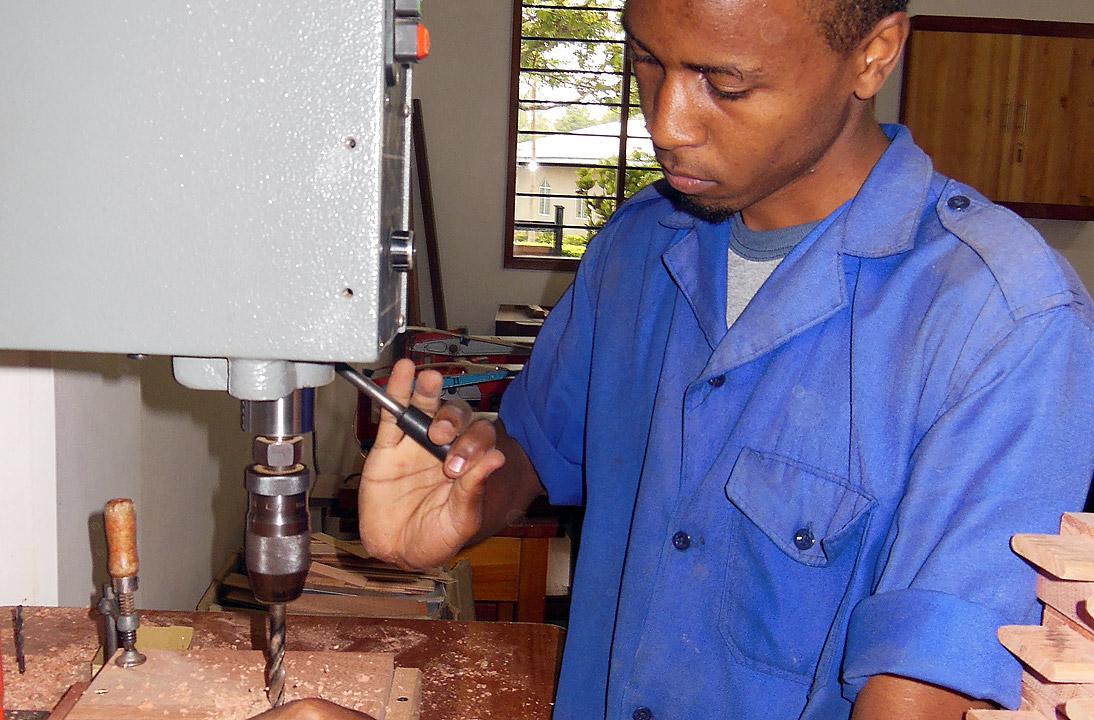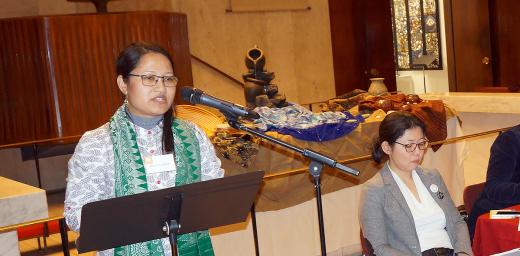Charting the path to church sustainability

A student at a vocational training center of the Evangelical Lutheran Church in Tanzania, near Arusha. Photo: LWF/Afram Pete
Representatives of Lutheran churches in the Democratic Republic of Congo, Ethiopia, Kenya, Madagascar, Rwanda, Tanzania and Uganda participated in a training workshop that looked at ways of strengthening capacity to mobilize local resources for ongoing church work and long-term sustainability.
The Lutheran World Federation (LWF) Department for Mission and Development (DMD) organized the 22-26 June workshop for member churches in the LUCCEA sub-region.
The training held in the Kenyan capital Nairobi, emphasized the need to focus on strengthening local resource support instead of relying mainly on the traditional assistance from foreign donors. The 20 participants heard that many church members in the LUCCEA region can afford and often dedicate their own resources for diaconal work. However the church management does not strategically target its members’ resources for long-term church sustainability.
Workshop facilitator Mr Geoffrey Kalugendo said that many church members have disposable income that they are willing to contribute when assured of efficiency, accountability and transparent communication about the management of such resources. “Apart from their financial means, many are also professionals in various fields and they can donate expertise to their churches, thus helping to save on professional fees,” he said.
Mr Gerard Muvunyi from the Lutheran Church of Rwanda said he had learned how the use of transparent and accountable management systems and structures can influence church members’ participation. “My church adopted sustainability as a key focus. For example, we use our members’ financial resources as well as labor to put up health centers and other projects. However, we were not doing it in the professional way we have learnt here that puts an emphasis on proper planning for effective local resource mobilization. When we start using such approaches I’m sure we will register even greater success,” he said.
Ms Nafikot Wendimu, representing the Ethiopian Evangelical Church Mekane Yesus (EECMY) said her church is engaging women as it acknowledges the unique role they can play in local resource mobilization. “We are now working on empowering women to increase their incomes, because women tend to support their churches more. Thus, the more women have the more they can give to their church,” said Wendimu, who works at the EECMY women’s department.
Afram Pete is a member of the African Lutheran Communication and Information Network – ALCINET.





